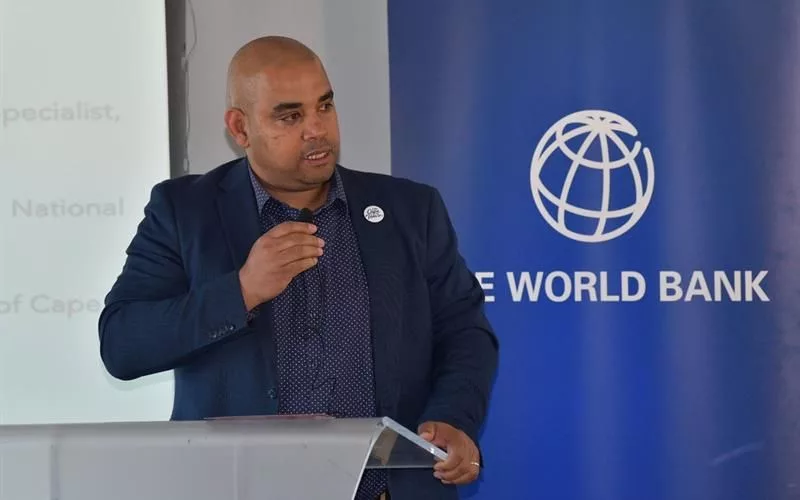Local governments are crucial in protecting vulnerable communities from extreme heat and other climate-related events. Cape Town is an excellent example of how local governments can take the lead in addressing the challenges posed by extreme heat, using innovative data collection, urban planning, and community engagement. Rising temperatures demand swift action, and local governments must prioritize sustainable, nature-conscious policies to ensure a safe and resilient future.
Tackling Extreme Heat: The Pivotal Role of Local Government
Local governments play a critical role in forging a shared future where the most vulnerable members of society are safeguarded and equipped to handle the implications of a shifting climate and severe weather events. Innovative data acquisition can empower city leaders with the essential knowledge to tackle the present and future effects of extreme heat and gain citizen backing for action. Cape Town provides an illuminating case study for other urban centers around the world, demonstrating the transformative power of local government in instigating significant change in the face of extreme heat.
Rising global temperatures, particularly in the summer months, necessitate swift and comprehensive action, especially since they disproportionately affect vulnerable populations. The Deputy Mayor of Cape Town, Alderman Eddie Andrews, in a meeting with representatives from the World Bank’s City Resilience Programme, National Treasury’s Cities Support Programme, and other city officials, has identified the urgency of tackling this issue. The meeting was a response to findings from a heat mapping study conducted earlier in the year in Cape Town.
Local Governments: A Key Driver of Climate Resilience
Local governments play a critical role in forging a shared future where the most vulnerable members of society are safeguarded and equipped to handle the implications of a shifting climate and severe weather events. Without political commitment, carrying out the necessary interventions becomes an arduous task. As such, local government should be at the forefront of advocacy campaigns for a sustainable future of Cape Town, championing nature-conscious and sustainable methodologies such as strategic urban greening.
Planning for both the long term and immediate future is a prerequisite, especially considering the exponential population growth of Cape Town, backed by political stability, well-defined policies, and an efficient administration. This has positioned the city as the fastest-growing in South Africa.
The Critical Nature of Planning for Extreme Heat
The World Health Organisation classifies extreme heat and heatwaves as among the deadliest natural phenomena, known as silent emergencies. While they frequently go unnoticed as a part of a typical summer in warm climates, they present a risk that demands thorough attention and planning.
The main focus in battling extreme heat includes preparing and responding to heat. The former involves effective planning to mitigate the risk of heat events impacting city services or business continuity, while the latter concentrates on managing the effects of heat and the threat to the public shortly before and during a heatwave or a high heat day.
The Potential of Cutting-Edge Data Collection
Innovative data acquisition can empower city leaders with the essential knowledge to tackle the present and future effects of extreme heat and gain citizen backing for action. The ‘Cool Cities Living Lab Community Heat Mapping Campaigns’ are a proven method that provides valuable information about exposure to extreme heat.
This data can guide the development of effective heat mitigation strategies, such as tree planting, shading, cool buildings, and early warning systems, thereby enabling cities to prioritize actions that target the most susceptible populations.
The Significance of the World Bank Heat Mapping Project
The World Bank Heat Mapping project, supported by key partners and benefactors like the National Treasury Cities Support Programme, the Swiss Secretariat for Economic Affairs (SECO), and the Global Facility for Disaster Risk Reduction, produces detailed city-scale heat maps. These can inform urban planning and emergency management choices to increase resilience to future heat events.
The project also recruited volunteers from vulnerable communities in Cape Town, educating them about heat risks and empowering them to enact proactive measures in their surroundings.
Examining Cape Town: A Vulnerable City
Cape Town is especially susceptible to high heat days and heatwaves. The most vulnerable regions are densely populated urban zones, industrial areas, residential districts, informal settlements, and densification areas around transport corridors. The city’s workforce, particularly those working outdoors, are at high risk. Long-term exposure to heat can lead to severe health consequences and hinder task performance and concentration.
City-Led Initiatives to Counter Heat
Besides the Heat Action Plan, multiple city strategies, policies, and programs focus on long-term heat mitigation measures to lower the urban heat island effect. This is realized through green infrastructure-related projects or plans, and long-term heat adaptation measures in terms of green building design and the execution of urban design tools.
These policies and programs, including the Urban Forest Policy, the Climate Change Strategy and Action Plan, the Green Infrastructure Programme and Network, the Biodiversity Network, and the Local Biodiversity Strategy and Action Plan, weave heat mitigation into the City’s Municipal Spatial Development Framework as a planning consideration.
In conclusion, local governments, in alliance with private and public sector partners, play a fundamental role in combating the menace of extreme heat. Through proactive planning, cutting-edge data collection, strategic urban greening, and a focus on vulnerable populations, considerable progress can be made towards a safer and more resilient future. Cape Town provides an illuminating case study for other urban centers around the world, demonstrating the transformative power of local government in instigating significant change in the face of extreme heat.
1. What role do local governments play in protecting vulnerable communities from extreme heat?
Local governments play a crucial role in protecting vulnerable communities from extreme heat and other climate-related events. They must prioritize sustainable, nature-conscious policies to ensure a safe and resilient future.
2. What is the significance of planning for extreme heat?
Planning for extreme heat is critical as it is classified as among the deadliest natural phenomena. Planning involves effective mitigation strategies to reduce the risk of heat events impacting city services or business continuity, and managing the effects of heat during high heat days or heatwaves.
3. How can cutting-edge data collection help tackle the effects of extreme heat?
Cutting-edge data acquisition can empower city leaders with essential knowledge to tackle the present and future effects of extreme heat. It can guide the development of effective heat mitigation strategies, making cities prioritize actions that target the most susceptible populations.
4. What is the World Bank Heat Mapping Project, and why is it significant?
The World Bank Heat Mapping Project produces detailed city-scale heat maps that can inform urban planning and emergency management choices to increase resilience to future heat events. It recruits volunteers from vulnerable communities, educating them about heat risks and empowering them to enact proactive measures in their surroundings.
5. Why is Cape Town vulnerable to high heat days and heatwaves?
Cape Town is especially susceptible to high heat days and heatwaves, with the most vulnerable regions being densely populated urban zones, industrial areas, residential districts, informal settlements, and densification areas around transport corridors.
6. What city-led initiatives are in place to counter heat in Cape Town?
Multiple city-led initiatives, policies, programs, and plans focus on long-term heat mitigation measures to lower the urban heat island effect. These include green infrastructure-related projects or plans, long-term heat adaptation measures in terms of green building design, and the execution of urban design tools, among others.












